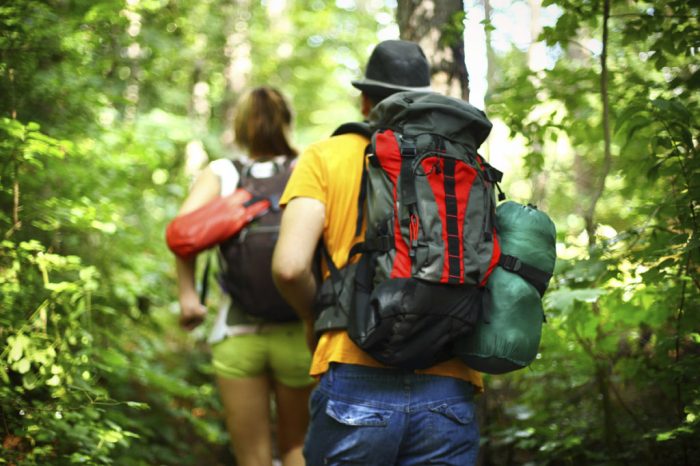
Embark on a journey into the world of eco-friendly wildlife holidays, where sustainable practices meet the thrill of exploring nature’s wonders. From protecting wildlife habitats to promoting conservation efforts, this topic is a captivating blend of adventure and environmental stewardship.
Discover how travelers can make a positive impact while immersing themselves in the beauty of wildlife destinations, all while treading lightly on the earth.
Eco-friendly Wildlife Holidays
When it comes to eco-friendly wildlife holidays, the focus is on promoting sustainable travel practices that minimize negative impacts on the environment and wildlife habitats. These holidays prioritize conservation efforts, local community involvement, and education about the importance of protecting the natural world.
Importance of Promoting Sustainable Travel Practices
Promoting sustainable travel practices in wildlife tourism is crucial to ensure the long-term survival of endangered species and fragile ecosystems. By opting for eco-friendly wildlife holidays, travelers can contribute to conservation initiatives and support local communities that depend on wildlife tourism for their livelihoods.
Examples of Eco-friendly Initiatives
- Implementing responsible wildlife viewing guidelines to minimize disturbance to animals in their natural habitats.
- Supporting eco-lodges and accommodations that follow sustainable practices such as using renewable energy sources and reducing waste.
- Participating in community-based conservation projects that empower local communities to protect wildlife and their habitats.
- Promoting ethical wildlife encounters that prioritize animal welfare and conservation over profit.
Festival Travel
When it comes to festival travel, combining eco-friendly practices is essential to minimize the impact on the environment and promote sustainability. Festivals often attract large crowds and generate a significant amount of waste, making it crucial to implement measures that support conservation efforts.
Reducing Environmental Impact
There are several ways in which festival organizers can reduce the environmental impact of their events:
- Implementing recycling and composting programs to reduce waste sent to landfills.
- Using renewable energy sources such as solar panels to power stages and facilities.
- Encouraging attendees to carpool or use public transportation to reduce carbon emissions.
- Sourcing local and organic food options to support sustainable agriculture practices.
Benefits of Eco-Friendly Festivals
Attending eco-friendly festivals not only benefits the environment but also provides advantages for both travelers and local communities:
- Travelers can enjoy guilt-free experiences knowing that they are supporting sustainable practices.
- Local communities can benefit from increased awareness of environmental issues and the promotion of eco-friendly behaviors.
- Eco-friendly festivals can help boost the local economy by supporting small businesses and artisans who prioritize sustainability.
- By showcasing eco-friendly practices, festivals can inspire attendees to adopt similar habits in their daily lives.
Mountain Trekking
When engaging in mountain trekking, it is essential to practice eco-friendly habits to minimize the impact on the environment. By following sustainable trekking practices, you can help preserve the natural beauty of the mountains and protect the local ecosystems and wildlife.
Tips for Eco-Friendly Mountain Trekking
- Avoid single-use plastics by using reusable water bottles and containers.
- Stay on designated trails to prevent soil erosion and damage to vegetation.
- Dispose of waste properly by carrying out all trash and recycling where possible.
- Respect wildlife by observing from a distance and not feeding or disturbing them.
- Use eco-friendly toiletries and biodegradable soaps to minimize pollution.
Comparison: Traditional vs. Sustainable Trekking
- Traditional Trekking: Involves using non-biodegradable items, straying off marked paths, and leaving behind waste.
- Sustainable Trekking: Focuses on reducing environmental impact, respecting nature, and leaving no trace behind.
Impact of Eco-Friendly Trekking
Eco-friendly trekking practices have a positive impact on local ecosystems and wildlife conservation. By minimizing pollution, reducing waste, and respecting nature, mountain trekking can coexist harmoniously with the environment, ensuring that future generations can also enjoy the beauty of these natural landscapes.
Mountain Retreats

Mountain retreats offer a unique opportunity for travelers to connect with nature while promoting sustainability and environmental conservation. These eco-friendly accommodations are designed to minimize their impact on the surrounding environment and showcase the beauty of the natural landscape.
Sustainable Initiatives
- Use of renewable energy sources such as solar panels and wind turbines to power facilities.
- Implementation of water conservation practices like rainwater harvesting and low-flow fixtures.
- Support for local communities through sourcing food and materials locally, reducing carbon footprint.
- Waste management strategies including recycling, composting, and reducing single-use plastics.
Promoting Environmental Awareness
Mountain retreats play a crucial role in educating guests about the importance of environmental conservation and fostering a deeper appreciation for nature. Through guided hikes, wildlife excursions, and educational programs, guests can learn about the delicate balance of ecosystems and the impact of human activities on the environment. By immersing visitors in the beauty of the mountains, these retreats inspire a sense of stewardship and responsibility towards protecting our natural world.
Wildlife Holidays

Choosing eco-friendly wildlife holidays not only benefits travelers but also helps in preserving the delicate ecosystems and wildlife habitats that we visit.
Benefits of Eco-friendly Wildlife Holidays:
- Reduced carbon footprint: Eco-friendly accommodations and transportation options minimize the impact on the environment.
- Supporting local communities: Responsible tourism helps in providing sustainable livelihoods for local communities living near wildlife reserves.
- Conservation efforts: By choosing eco-friendly tours, travelers contribute directly to wildlife conservation initiatives.
Negative Impacts of Traditional Wildlife Tourism:
- Habitat destruction: Traditional tourism can lead to habitat destruction and fragmentation, threatening the survival of wildlife species.
- Disturbance to wildlife: Large crowds and noisy activities can disrupt the natural behavior of animals and cause stress.
- Pollution: Increased tourism can result in pollution of water sources, air, and soil, affecting both wildlife and local communities.
Supporting Wildlife Conservation During Eco-friendly Holidays:
- Choose certified eco-friendly accommodations and tour operators that prioritize sustainability and wildlife protection.
- Respect wildlife and their habitats by following guidelines set by park authorities and naturalists.
- Participate in wildlife monitoring programs or volunteer opportunities to directly contribute to conservation efforts.
Final Review
As we wrap up our exploration of eco-friendly wildlife holidays, remember that the choices we make as travelers can shape the future of our planet’s natural treasures. By embracing sustainable practices and supporting wildlife conservation, we can ensure a brighter tomorrow for both humanity and the animal kingdom.
Frequently Asked Questions
How can eco-friendly wildlife holidays benefit local communities?
Eco-friendly wildlife holidays can contribute to the local economy, support conservation efforts, and raise awareness about the importance of preserving natural habitats.
What are some examples of eco-friendly initiatives in wildlife holiday destinations?
Examples include supporting local wildlife conservation projects, promoting responsible wildlife viewing practices, and partnering with eco-conscious accommodations.
How can travelers minimize their environmental impact while mountain trekking?
Travelers can reduce waste, stay on designated trails, avoid disturbing wildlife, and choose eco-friendly gear and accommodations.
What benefits do eco-friendly mountain retreats offer to travelers?
Eco-friendly mountain retreats provide a peaceful escape in nature, promote sustainability practices, and offer unique experiences focused on environmental awareness.
Why is it important to support wildlife conservation during eco-friendly holidays?
Supporting wildlife conservation helps protect endangered species, preserve ecosystems, and ensure a sustainable future for wildlife and future generations.





